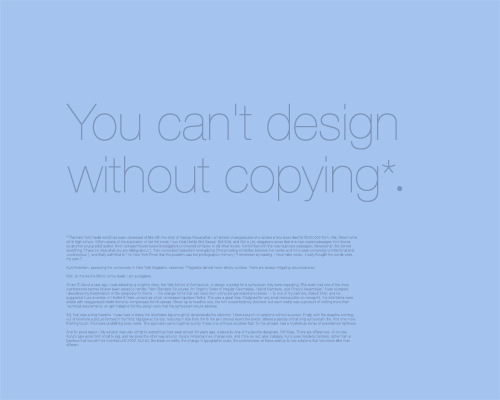Good article in the Guardian by Mark Lawson today on ‘critic proof products’ such as The Da Vinci Code. Indeed it does seem that no matter how much critics pan certain films, they are destined to do well.
In an age of $200 million movies its no wonder that studios want to ensure that their products do well, and more than likely are prepared to take less risks in making a movie and thus tend to create semi-watch able, entertaining eye candy that don’t really inspire beyond the same old plot formulas, for example:
1. Man meets woman or vice versa. Usually through a chance meeting, but sometimes through a blind date or whatever.
2. Man and woman either have rocky start before they fall in love or they just experience one of those “love at first sight” things.
3. After a whirlwind romance, one of two things happens. The man either does something stupid to tick off the woman and she leaves him. This usually involves either him cheating on her or them just having a general misunderstanding. The other option at this point is that he’s either lied about something in his past or just lied to her about something in general, and when she found out, she left him.
4. Turmoil ensues leaving both the man and the woman completely miserable.
5. The man does something spectacular and romantic to either apologize to the woman or to make it up to her.
6. She forgives him and they live happily ever after…at least until the sequel.
From: B movie central
Or how about:
Every story has a protagonist (hero) and an antagonist (villain). The hero is placed in seemingly insurmountable circumstances with the villain being the cause of those circumstances. The plot then thickens. The audience empathizes or sympathizes with the hero. The climax involves the protagonist almost giving into the antagonist, but at the last moment their unfaltering moralistic attitude wins through and the antagonist is defeated.
Indeed it always makes me smirk when people, especially critics, seem to expect more from Hollywood.
Since its inception during the 1910s, Hollywood has been one thing: a business. Driven first by European immigrants and then by Wall Street investors, film has never been an artefact but instead, primarily a commodity. However, unlike most commodities, all films are unique and so producers have attempted to reduce risk through a number of techniques including the remake.
It’s no wonder that critics, who have to sit through much more of this crap than we do, get a little tired of the same movies parading before their eyes. In addition when most of the output is indeed Hollywood branded, it must be hard to come to terms with the fact that there is little point of even debating the artistic relevance of a movie when they know that at every point the studios have been trying to exorcise that particular ghost in place of bankable certainty . The result seems to often manifest in melancholy.
Lawson suggests other reasons why critics seem to not get through, proliferation of internet reviews, being out of step with the public, different tastes etc.
But I would like to suggest another more obvious reason why no-one listens to the film critics, ITS BECAUSE THEY ALWAYS TELL YOU WHAT’S GOING TO HAPPEN IN THE FILM!
Now I appreciate that its difficult to review a film without giving a little away of the story. But damn-it do you have to tell us what’s going to happen at the end?
A random review on the Guardian’s website for The King starts the last paragraph with
The movie comes to a crunch as….
I don’t want to know what friggin’ happens when the movie comes to the crunch! Its bad enough that most Hollywood creations are somewhat transparent, I at least want to kid myself that there might be a twist in the tail or an unexpected plot. What I do not want is a critic that not only rips the movie to shreds, but then tells me exactly what is going to happen anyway. No wonder people ignore critics, they figure, well I may as well make up my own mind.
















